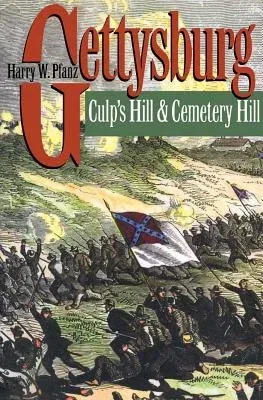In this companion to his celebrated earlier book, Gettysburg--The
Second Day, Harry Pfanz provides the first definitive account of the
fighting between the Army of the Potomac and Robert E. Lee's Army of
Northern Virginia at Cemetery Hill and Culp's Hill--two of the most
critical engagements fought at Gettysburg on 2 and 3 July 1863. Pfanz
provides detailed tactical accounts of each stage of the contest and
explores the interactions between--and decisions made by--generals on
both sides. In particular, he illuminates Confederate lieutenant general
Richard S. Ewell's controversial decision not to attack Cemetery Hill
after the initial southern victory on 1 July. Pfanz also explores other
salient features of the fighting, including the Confederate occupation
of the town of Gettysburg, the skirmishing in the south end of town and
in front of the hills, the use of breastworks on Culp's Hill, and the
small but decisive fight between Union cavalry and the Stonewall
Brigade.
"Rich with astute judgments about officers on each side, clearly
written, and graced with excellent maps, Pfanz's book is tactical
history at its finest.--Civil War
"A meticulous examination of the desperate engagements that over the
course of the three days swept up and down the rough slopes of these two
hills, the strategic anchors of the Union right flank.--New York Times
Book Review
"The first and most comprehensive narrative yet written on this part of
the battlefield. . . . Civil War enthusiasts should clear a space on
their bookshelf for Gettysburg--Culp's Hill and Cemetery Hill.--Blue
and Gray
Harry Pfanz provides the definitive account of the fighting between the
Army of the Potomac and Robert E. Lee's Army of Northern Virginia at
Cemetery Hill and Culp's Hill--two of the most critical engagements
fought at Gettysburg on 2 and 3 July 1863. He provides detailed tactical
accounts of each stage of the contest and explores the interactions
between--and decisions made by--generals on both sides. In particular,
he illuminates Confederate lieutenant general Richard S. Ewell's
controversial decision not to attack Cemetery Hill after the initial
Southern victory on 1 July.














